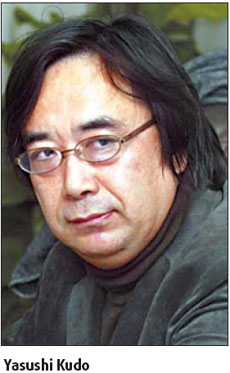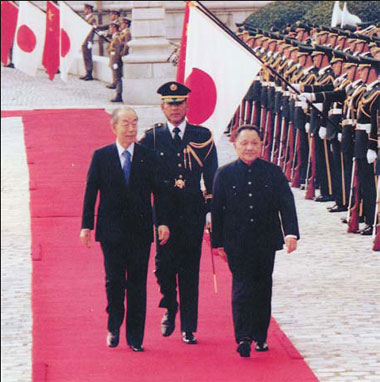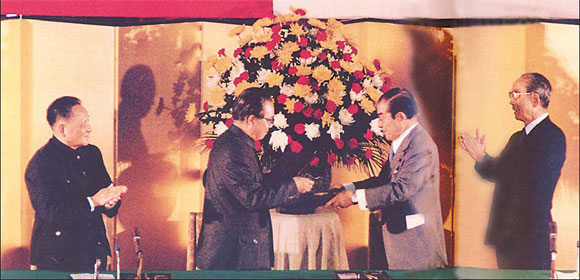Fukuda out to build bridges across the continent
Updated: 2007-12-27 07:24
Prime Minister Yasuo Fukuda was born in Gunma, Japan, home prefecture of two great prime ministers, Yasuhiro Nakasone and Fukuda's father, Takeo.
The Fukudas were once a powerful landlord family managing big farms.
They are not ideologically opinionated people but consummate politicians who can lead and coordinate and put people at ease.
|
Deng Xiaoping receives a guard of honor in Tokyo during his visit to Japan in October 1978. Then Japanese prime minister Takeo Fukuda is with him. |
Taking office after Shinzo Abe's resignation, Fukuda's priority has been to restore the public's trust in politicians.
As he has pointed out, Japan is undergoing reforms and is exhausted by the process.
The prime minister stumped up the slogan "restoration of trust" as manifestation of elements of his trustworthy personality.
His pursuit of harmony is coupled with his understanding of Asia and China.
Fukuda's father was prime minister when the China-Japan Treaty of Peace and Friendship was signed 29 years ago.
The prime minister's Beijing visit prior to the 30th anniversary is not just a simple high-level visit, but reflects a genuine desire to build on his father's legacy and maintain peace in Asia.
Fukuda has already stressed he will not visit Yasukuni Shrine, the strongest indication of his respect for China.
His China policy has inherited Abe's line of opening the door of Sino-Japanese relations - minus his predecessor's antagonism.
Unlike Abe and Koizumi, he has adopted a harmonious attitude to the relationship between China and Japan.

And his policies toward other countries have also exhibited a "pursuit of harmony".
His judgment that China's continuous growth into a major economic power means it no longer needs yen loans, however, should be viewed separately.
The election of Fukuda has no direct relations with his China policy, but it has accompanied a change in attitude across Japan.
Japanese people are tired of policies which arouse the antipathy of other Asian countries.
Their awareness has entered a new phase in which improving relations with China and greater Asian cooperation is widely desired. The political ascent of Fukuda is not unrelated to such views.
The deterioration of the Japan-China relations earlier was attributed to the behavior of politicians, but miscommunication between China and Japan hindered mutual understanding and partly resulted in the emotional confrontation of people behind the scene.
In this regard, I believe extensive and solid civil exchanges will promote our political communication.
It is of far-reaching significance for Fukuda, a prime minister who builds mutual trust among people, to visit China at the busy end of the year.
The author is head of Genron NPO, a non-profit organization dedicated to creating forums for responsible, productive debates on Japan's future.
|
Deng Xiaoping applauds as Chinese and Japanese representatives exchange the instruments of ratification of the China-Japan Treaty of Peace and Friendship at then Japanese prime minister Takeo Fukuda's residence in Tokyo October 1978. |
(China Daily 12/27/2007 page12)
|
|
|
||
|
||
|
|
|
|

